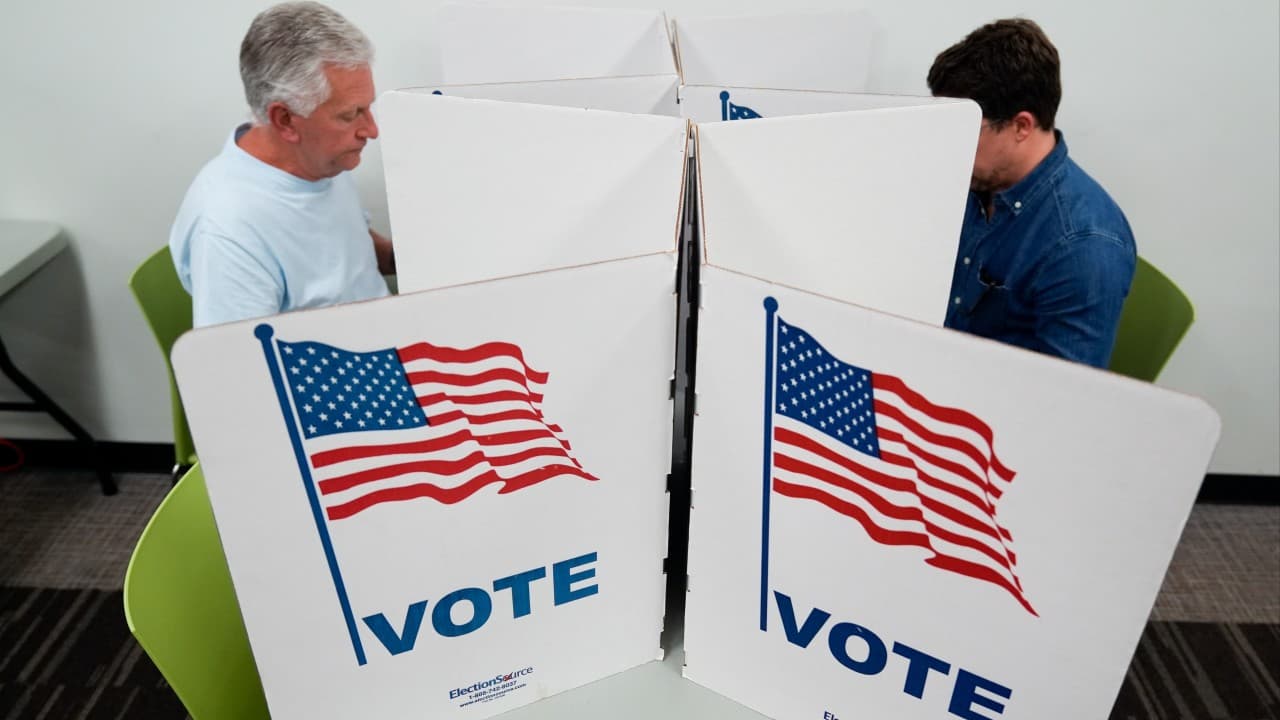Context
While plenty of attention is given to the close race for the presidency and control of Congress, voters across the United States will also be voting on ballot proposals, sometimes called referendums, that will enact laws or amend their state’s constitution.
There are marquee proposals establishing a state right to abortion access, as well as others altering drug policy to state minimum wage.
Here are some of the most consequential ballot measures and why they deserve your attention.
Context
Drug Policy
Florida, Nebraska, North Dakota, and South Dakota all have measures that would legalize marijuana in some form. In Florida, North Dakota, and South Dakota, where medical marijuana is already legal, citizens will choose if they also want to legalize recreational marijuana.
Voters in Nebraska, where marijuana use is illegal, can choose to make the state the 39th to offer a medical marijuana program.
In Massachusetts, a ballot proposal would legalize and regulate the use of some psychedelic drugs, including psilocybin, DMT, and mescaline. If approved, Massachusetts would become the third state to approve such a measure, after Colorado and Oregon. Sales would not be permitted, but possession and growth would be allowed.
Context
Reproductive Rights
Ten states, from deep blue New York to ruby red Missouri, will be voting on whether to enshrine abortion access into their state constitutions. In blue states, like New York and Colorado, not much would change as reproductive rights are already recognized in state law.
In other states, initiatives would completely replace and invalidate state laws that ban abortion. These states are Arizona, Florida, Missouri, Montana, Nebraska, and South Dakota.
Ballot initiatives expanding reproductive rights have seen huge success since Roe v. Wade was overturned in 2022, even in red states. The measures face additional burdens, however, in Florida and Nebraska. In Florida as proposals require a 60% supermajority to pass, and in Nebraska due to a competing initiative that would ban abortion after the first trimester.
Context
Democracy and Voter Access
Ohio voters will have the option to establish an independent redistricting commission, outlawing a practice known as “gerrymandering”, where politicians draw legislative districts that unfairly favor themselves or their party.
Republicans, who currently have control of state government and drew the current legislative maps, have rallied against the measure. The state ballot board, which has a Republican majority, changed the ballot language to falsely imply the measure would “require gerrymandering”.
Idaho, Iowa, Kentucky, Missouri, North Carolina, Oklahoma, South Carolina, and Wisconsin all have ballot proposals that would establish constitutional bans on non-citizens voting. Non-citizens are already prohibited from voting in federal elections and no state currently allows them to vote in statewide elections.
Context
Ranked Choice Voting
Ranked choice voting is a voting system where voters can rank multiple candidates in order of their preference. If their top choice receives the least amount of votes then their vote would transfer to their next option, and so on. That differs from the current “first past the post” system where a voter can only make a single choice.
Supporters praise the system for creating more competitive elections and accountability to voters. Opponents claim it's unnecessary and adds confusion to the voting process.
Colorado, Idaho, Missouri, Nevada, and Washington DC will all be voting on adopting ranked choice voting. Arizona and Missouri are voting on banning any future implementation of it.
In Alaska, where voters approved ranked choice voting only four years ago, a ballot proposal looks to repeal it.
Context
Minimum Wage
The federal minimum wage in the United States has been set at $7.25 since 2009. That’s led to a patchwork of state minimum wage laws, many of which have been initiated by ballot proposals.
In California, a ballot proposal could see the state minimum wage increase from $16 to $18 by 2026. Missouri voters could increase their minimum wage from $12.30 to $15, and Alaska voters from $11.73 to $15. Both Missouri’s and Alaska’s measures would also require employers to offer paid sick leave.
Voters in Massachusetts will decide on increasing the state’s tipped minimum wage, while Arizonans will vote on decreasing the tipped minimum. In both states, the tipped minimum is lower than the standard minimum wage.
Context
Climate
California has the most expansive ballot proposal in terms of climate change. Proposition 4 would approve the state to borrow $10 billion in bonds for climate change mitigation and adaptation projects across the state.
On the other hand, in Washington state, voters will have the option of repealing climate legislation passed by the state legislature. One question, 2066, would bar the government from placing restrictions on natural gas use. The other, 2117, would repeal a recently passed law that put caps on emissions.
